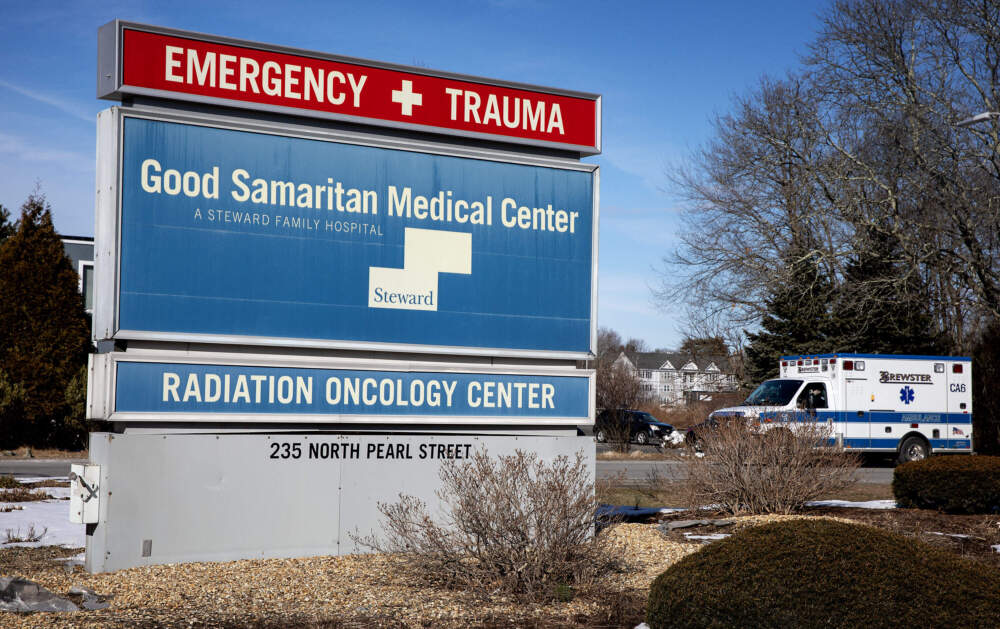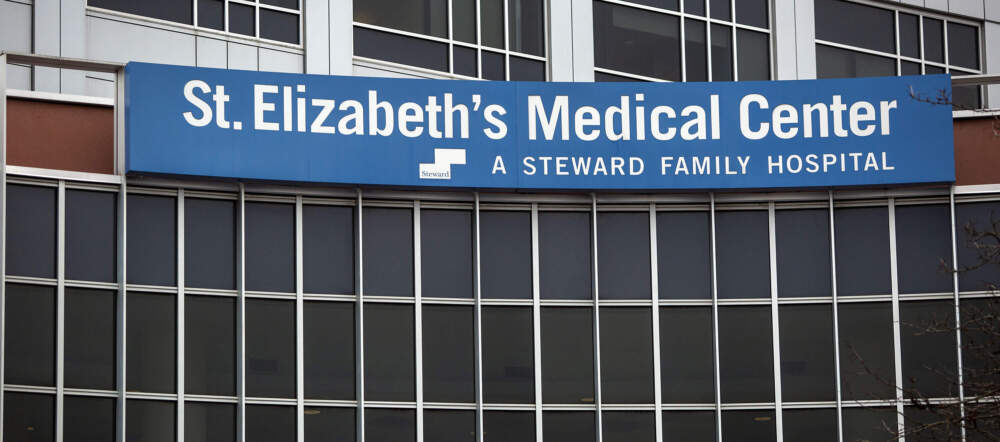Advertisement
Mass. alleges Steward jeopardized patient safety while paying off investors

Massachusetts officials are alleging that Steward Health Care — now in bankruptcy — gave massive payouts to investors while leaving hospitals without the resources to maintain essential equipment or keep adequate supplies of emergency room drugs.
Details emerged in legal documents filed this week in U.S. Bankruptcy Court in Houston, where Steward filed for Chapter 11 bankruptcy protection Monday. The court records provide a clearer picture of Steward’s unwieldy debts and how they affect patient care.
In early April, monitors from the state Department of Public Health found Good Samaritan Medical Center in Brockton was low on the supplies needed to treat trauma patients, even though it is the only trauma center in that region, state officials said in court documents.
During visits to St. Elizabeth’s Medical Center in January and February, officials said they found the Brighton hospital had run out of certain mechanical heart valves because it had not paid the supplier.
And across Steward’s Massachusetts hospitals, equipment ranging from elevators to medication-dispensing cabinets are broken and cannot be fixed because Steward failed to pay vendors, according to the state. The company is also behind on payments for MRI and CT machines.
“Steward’s mismanagement has threatened to endanger patient health and safety,” lawyers for Massachusetts wrote in a legal brief.
“Steward has lurched along, sustained only by a series of bridge loans,” they said, “all the while continuing to underfund hospital operations and leave suppliers, vendors, and other unsecured obligations unpaid.”
A Steward spokesperson declined to comment on the state’s allegations.
Steward is a privately-owned, for-profit company that operates more than 30 hospitals nationwide, including eight in Massachusetts. In court this week, Steward’s lawyers described the company as “a success story” and “a strong company” despite accumulating so much debt that it needed to file for bankruptcy.
The company has debt in the range of $1 billion to $10 billion, according to court documents. It owes money to staffing agencies, medical device makers and health technology companies, among other creditors.
Ray Schrock, one of Steward’s attorneys, said during a court hearing Tuesday that the company is trying to sell all its hospitals quickly, with a deadline of June 25 for the Massachusetts hospitals. But he acknowledged the timeline seems infeasible because hospital sales also require state approvals.
Advertisement
“It's going to have to be done deliberately and safely,” Schrock said. “Patient care is paramount.”
Judge Christopher Lopez, the Texas justice overseeing the case, said the impact on patients’ lives makes this bankruptcy case different from others.
“There's real patients who are showing up at the hospital, like, right now,” Lopez said at the first court hearing in the case. “I want them to feel comfortable that the physician that they are going to see, that there [is] nothing in the back of their mind other than their treatment and the care that they're going to receive.”

At least one patient in Massachusetts has died because of Steward’s failure to pay for medical equipment, state officials allege in court documents. She was a new mother at St. Elizabeth’s who suffered bleeding after giving birth. The woman needed an embolization procedure, using a small coil, to stop the bleeding. But St. Elizabeth’s didn’t have the coils — the equipment had been repossessed for nonpayment of bills, according to state officials. The incident was first reported by The Boston Globe.
In recent weeks, state monitors found that Steward also failed to maintain fire safety equipment.
Donald Berwick, senior fellow at the Boston-based nonprofit Institute for Healthcare Improvement, said it’s abnormal and potentially dangerous for hospitals to operate like this.
“The hospitals were placed under increasing financial pressures. When those pressures exist, they cut costs,” he said.
“Patients should be concerned,” Berwick said. “That said, I’m sure these hospitals are very much on alert right now, more so than the average hospital.”
Earlier this week when Steward filed for bankruptcy, state officials said they’re continuing to monitor Steward’s hospitals daily and urged patients to go to Steward facilities if they need care.
Steward’s list of unpaid bills is long and varied, according to court documents. It owes $1.2 million for nurses that Brockton Hospital loaned to Good Samaritan. It’s behind almost $800,000 in payments to the UMass Chan Medical School for newborn screening tests. It also stopped paying Fresenius Medical Care for providing in-hospital dialysis treatment.
Massachusetts officials allege Steward executives engaged in financial deals that jeopardized their hospitals’ ability to provide care. In 2016, Steward sold its hospital properties to an Alabama real estate firm, Medical Properties Trust, or MPT. Now, MPT jointly owns Steward’s Massachusetts hospital properties with an Australian firm, Macquarie Asset Management.
In 2023, Steward owed $110 million in rent on its Massachusetts hospitals, according to court documents. This included $24 million for Carney Hospital in Dorchester, $22 million for St. Elizabeth’s and $24 million for Holy Family Hospital’s campuses in Haverhill and Methuen. State officials called these payments “excessive” and “exorbitant.”
Executives from MPT, however, denied that rent played a significant role in Steward’s financial difficulties. The real estate firm’s chief executive, Edward Aldag Jr., told investors on an earnings call Thursday that rent is a fraction of hospital revenue and “is virtually never the primary cause of financial stress for hospitals.”
He added that MPT’s lease-back deals provide capital for hospital operators, “enabling them to redirect the substantial cash resources that would otherwise be used for real estate to their primary mission: healing patients.”
During the call, MPT leaders indicated they expect new operators to take over most if not all of Steward’s hospitals.
WBUR's Elisabeth Harrison contributed to this story.
This segment aired on May 10, 2024.
